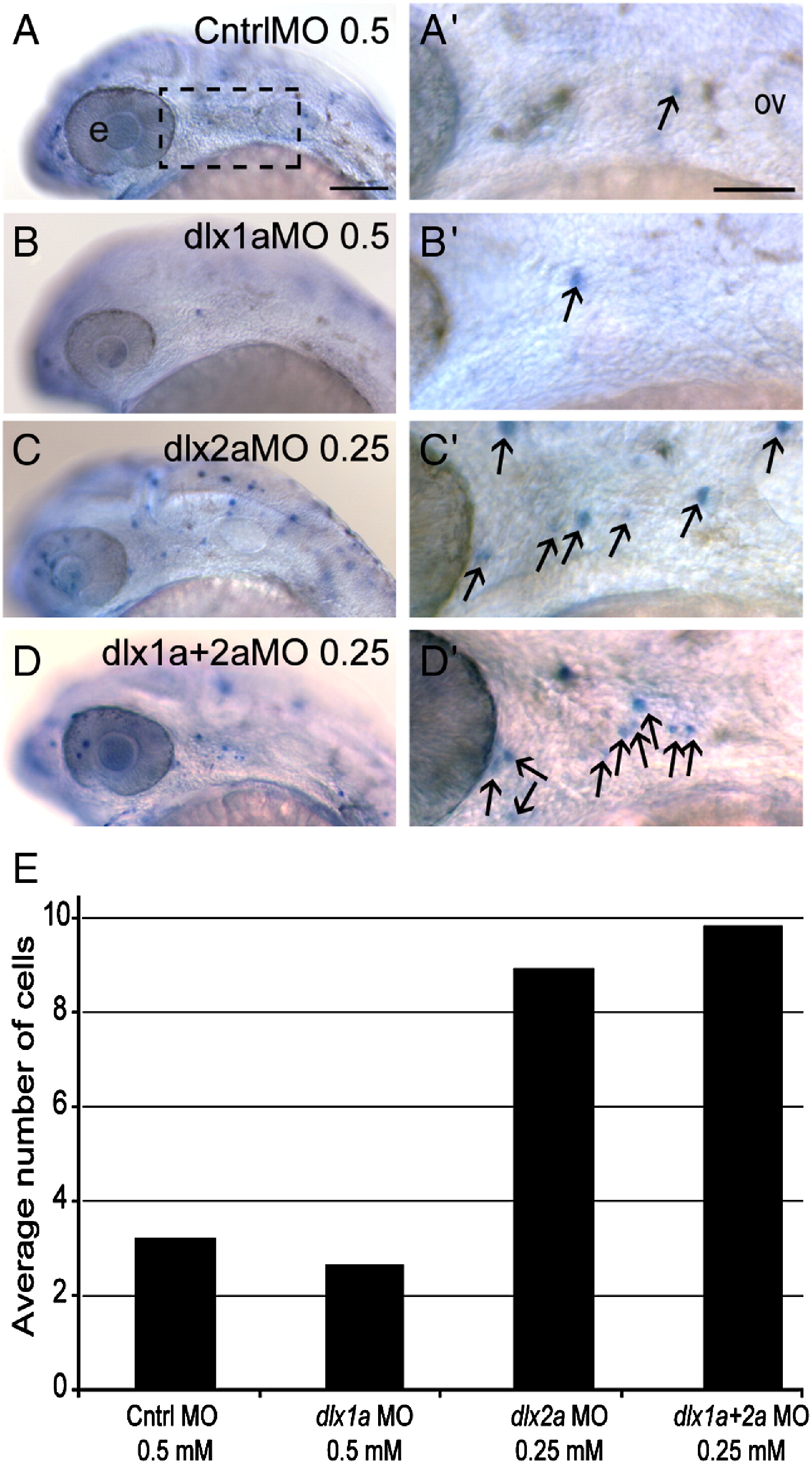Fig. 4 Zebrafish dlx2a is necessary for survival of a subset of cranial neural crest cells at later stages of pharyngeal arch development. TUNEL labeling was performed on 32 hpf embryos that received (A, A′) the control MO, 0.5 mM; (B, B′) dlx1aMO, 0.5 mM; (C, C′) dlx2aMO, 0.25 mM; (D, D′) dlx1aMO + dlx2aMO, 0.25 mM each. Anterior is to the left. e, eye; ov, otic vesicle. Boxed area (A) delineates region of interest (ROI) magnified in the associated A′?D′ panels. Arrows indicate cells labeled by TUNEL. Scale bar (A?D): 100 μm; (A′?D′): 50 μm. (E) Histogram depicting the average number of cells undergoing apoptosis within the ROI. Numbers of cells undergoing apoptosis, within the boxed area, were derived by counting and averaging cells from 10 embryos for each morpholino injected.
Reprinted from Developmental Biology, 314(1), Sperber, S.M., Saxena, V., Hatch, G., and Ekker, M., Zebrafish dlx2a contributes to hindbrain neural crest survival, is necessary for differentiation of sensory ganglia and functions with dlx1a in maturation of the arch cartilage elements, 59-70, Copyright (2008) with permission from Elsevier. Full text @ Dev. Biol.

